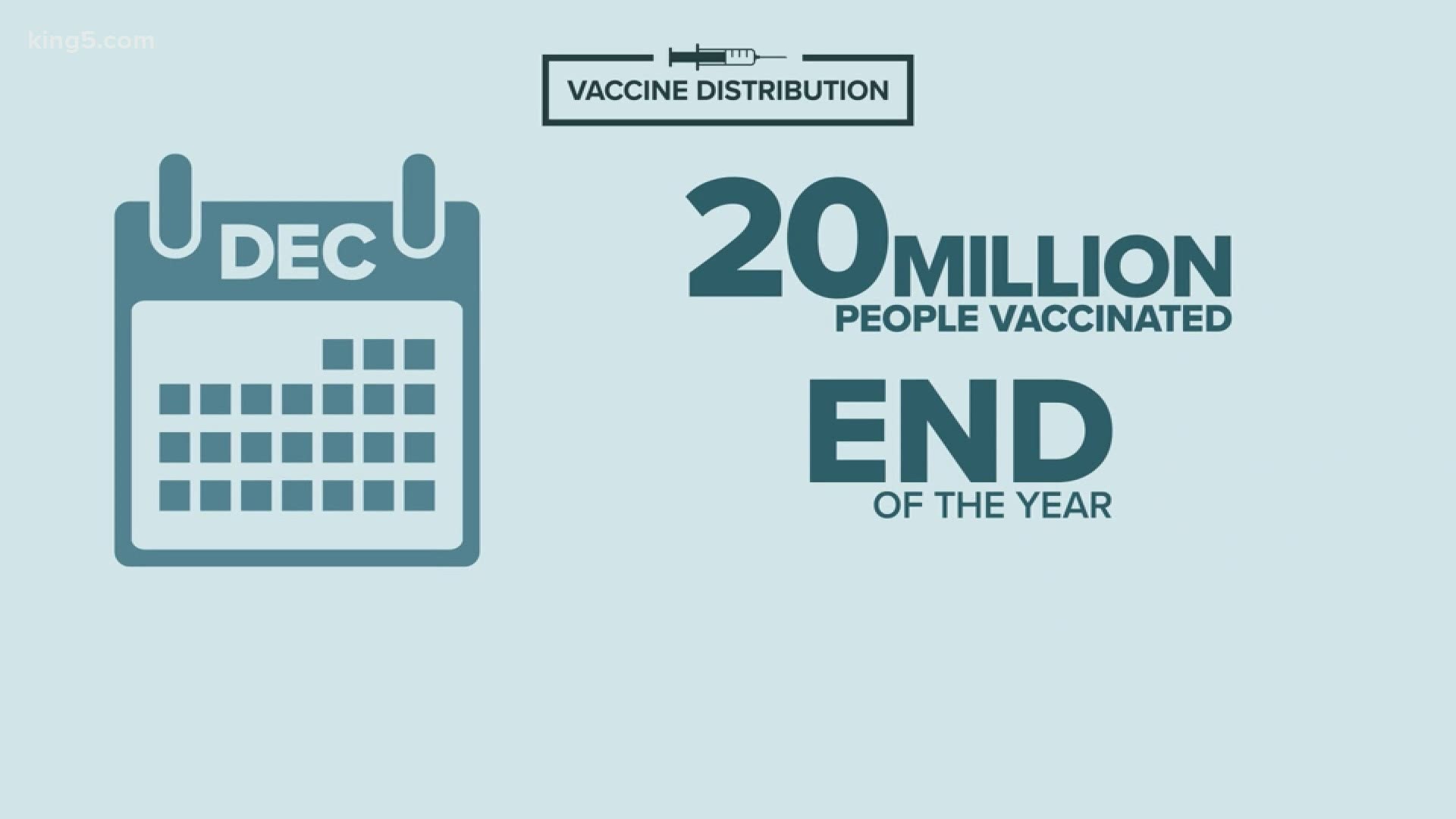PORTLAND, Ore — Pfizer and Moderna's COVID-19 vaccines have already been shipped across the U.S. by the thousands, but only a fraction of the doses delivered have been administered.
In Oregon, for example, the state has received more than 187,000 doses as of Dec. 30, but less than one-quarter of them have been administered. According to the Center for Disease Control and Prevention (CDC), most other states are in a similar boat.
A dashboard on the CDC website shows more than 12.4 million doses have been distributed across the country, but only about 2.8 million have been administered.
Recently, health officials have been announcing plans to ramp up vaccinations, which is important not only for the sake of protecting people's health, but also preserving the limited vaccine supply states have access to.
We know the COVID-19 vaccines require cold storage to last, but that doesn't mean they last forever.
KGW's VERIFY team set out to answer: How long does it take for the COVID-19 vaccines expire?
The Pfizer-BioNTech and Moderna COVID-19 vaccines both have a shelf life of up to six months, but Pfizer's requires ultra-cold storage to last that long, the company said in November.
That means Pfizer's vaccine must be kept at about minus 70 degrees Celsius (minus 158 Fahrenheit), which requires a special kind of commercial freezer. The vaccine can only be stored for five days at regular refrigeration temperatures.
Pfizer said the vaccine is being distributed in thermal shippers, which maintain ultra-cold temperatures using dry ice. The vaccine can last up to 30 days by refilling these shippers with dry ice every five days.
On the other hand, Moderna said its vaccine can be stored for up to six months at standard freezer temperatures around minus 20 degrees Celsius (minus 4 Fahrenheit) or 30 days refrigerated at about 2 to 8 degrees Celsius (36 to 46 Fahrenheit).
This makes the vaccine a more viable option for rural communities that may not have access to an ultra-cold freezer.
The CDC website says Pfizer and Moderna's vaccines take at least a couple hours to thaw, and they must be administered relatively quickly while at room temperature. Once thawed, neither vaccine can be refrozen.
So with the slower-than-expected rollout of the vaccines, is the shelf life of each vaccine something to be concerned about?
Dr. Joe Sullivan with the Oregon Health Authority (OHA) said he's not particularly worried.
"Both of the vaccines can be stored in freezers for six months. So once it's thawed, that's really when the clock starts to tick," Sullivan said. "So for Pfizer, it's five days and for the majority of vaccine is 30 days."
He said the reason the rollout has been tricky is because whoever is administering the vaccines has to know how much is needed to thaw so doses can be administered in a reasonable timeframe.
He said it's a learning process the OHA is undertaking right now.
Do you have something you want us to VERIFY? Let us know. Email us at Verify@kgw.com

